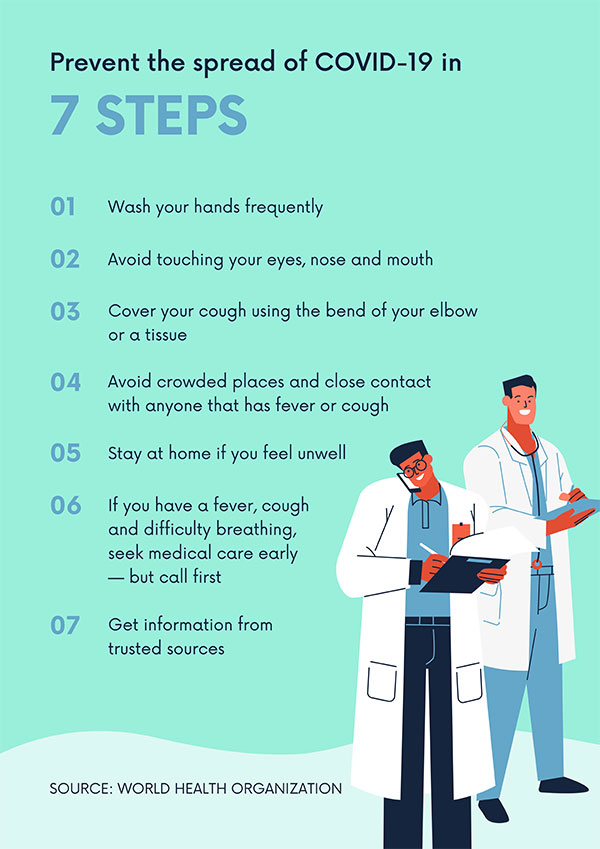COVID-19 Prevention
Resources
COVID-19 and Flu Information

Getting a flu vaccine during 2020-2021 is more important than ever, so if you haven’t taken your vaccine yet, it’s not too late.
The flu vaccine has been shown to reduce the risk of flu illness, hospitalization, and death. While being immunized against flu will not protect you against COVID-19, it can save healthcare resources for the care of patients with COVID-19 by helping to keep you flu-free.
There are some key differences between flu and COVID-19 to keep in mind :
Flu and COVID-19 have many similar symptoms. Testing may be needed to confirm a diagnosis.
Symptoms of both COVID-19 and flu ranging from no symptoms (asymptomatic) to severe symptoms and include:
- Fever or feeling feverish/chills
- Cough
- Shortness of breath or difficulty breathing
- Fatigue (tiredness)
- Sore throat
- Runny or stuffy nose
- Muscle pain or body aches
- Headache
- Some people may have vomiting and diarrhea, though this is more common in children than adults
COVID-19 has caused more serious illnesses in some people. COVID-19 may also include change in or loss of taste or smell.
Flu is contagious 1 day before symptoms begin and remains contagious for approximately 7+ days.
COVID-19 is contagious 2 days before symptoms appear and remains contagious for at least 10 days. If someone is asymptomatic or their symptoms go away, it’s possible to remain contagious for at least 10 days after testing positive for COVID-19.
Both COVID-19 and flu can spread from person-to-person, between those in close contact (within about 6 feet) through viral droplets (COVID-19 or flu) cough, sneeze, or talk, by physical human contact (e.g. shaking hands) or by touching a surface that has virus on it and then touching his or her own mouth, nose, or eyes.
Source: https://www.cdc.gov/flu/symptoms/flu-vs-covid19.html


